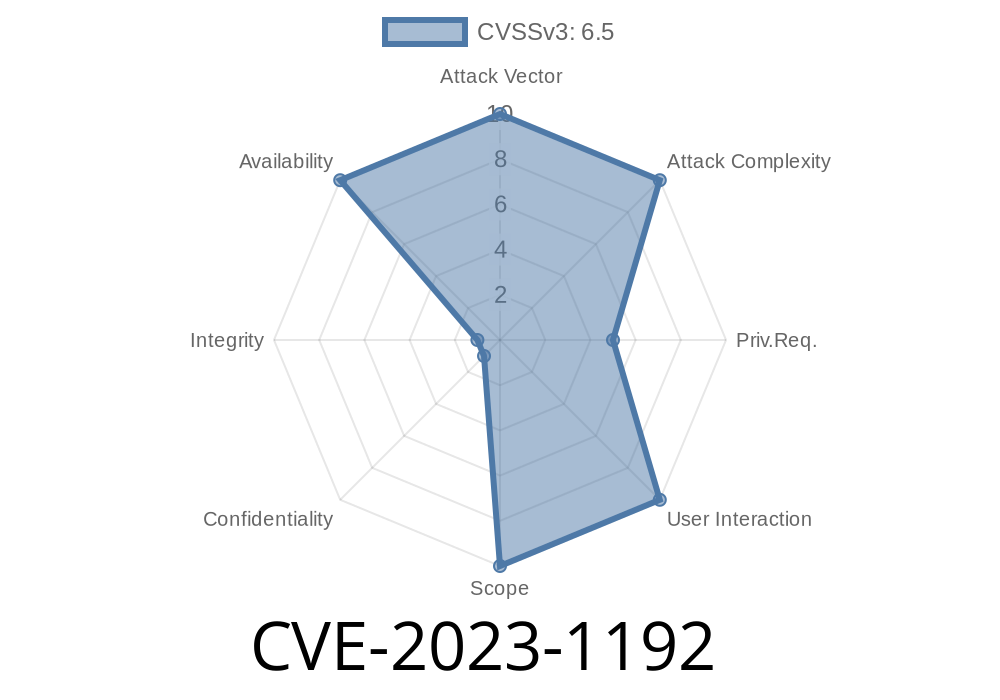In early 2023, a critical vulnerability was found in the CIFS (Common Internet File System) protocol implementation in the Linux Kernel. Tracked as CVE-2023-1192, this flaw is a classic “use-after-free” bug, which can lead to crashes or even more severe attacks such as code execution in certain scenarios. This article explains the vulnerability, its impact, and shares code snippets and exploitation details for security researchers and system administrators.
What Is the Vulnerability?
The problem lies in the function smb2_is_status_io_timeout() found in the Linux Kernel’s CIFS subsystem. After response data is handed off from CIFS to a system call, a local variable (rsp) still points to that same memory. If the system call frees this memory before CIFS is done with it, the kernel will try to access memory that no longer belongs to it—a classic “use-after-free” condition.
This bug can be abused, deliberately or accidentally, to cause a local denial-of-service (DoS) condition (kernel crash), especially when accessing network shares via CIFS/SMB.
It passes this response up to a system call, for instance as part of a file operation.
3. The kernel expects smb2_is_status_io_timeout() to check the status code, and it reads the response with a local pointer (rsp).
4. Problem: if the system call completes and frees the response memory before CIFS finishes, rsp now points to freed memory—so any access to it is unpredictable and unsafe.
Code Snippet Example
Here’s a simplified version based on the patch and source references:
// Original (Vulnerable) code fragment
bool smb2_is_status_io_timeout(void *resp_buf)
{
struct smb2_hdr *rsp = (struct smb2_hdr *)resp_buf;
// ...some code...
if (rsp->Status == STATUS_IO_TIMEOUT)
return true;
// ...more code...
}
Problem: After giving resp_buf to another part of the kernel, it might get freed, but rsp is still being used to dereference its contents.
The Patch
The patch ensures that smb2_is_status_io_timeout() only operates on memory that is definitely valid before handing it off or after taking proper references to it.
Upstream patch
Red Hat Bugzilla Report
Exploit Details (Proof-of-Concept)
While a public full exploit is not commonly available (to prevent widespread abuse), here's an outline of how an attacker could cause a crash:
1. Mount a network share over CIFS/SMB.
2. Trigger a crafted SMB reply to cause a system call (like read, write, etc.) to return and free the memory rapidly.
3. Simultaneously trigger operations in CIFS using the same SMB response buffer, causing it to dereference now-freed memory.
In theory, user-space code could exploit this locally by racing operations against each other, causing the kernel to crash with a “use-after-free” or “segmentation fault” panic.
Pseudo-code example
# Mount a CIFS share (attacker-controlled SMB server on the LAN)
mount -t cifs //192.168.1.100/share /mnt/share -o username=foo,password=bar
# In parallel:
# 1. Run a process that performs rapid reads/writes
# 2. Simultaneously cause abnormal session closes/restarts from the SMB server side
while true; do cat /mnt/share/somefile > /dev/null; done &
# On the SMB server, force timeouts/disconnects at the right moment
# If successful, this can trigger the kernel bug and crash the system
Impact and Severity
- Availability: This bug can be reliably used to crash systems that access malicious or unstable CIFS/SMB servers.
- Local Privilege Escalation: In some cases, use-after-free bugs can be leveraged to execute code in kernel mode. As of the latest reports, this specific flaw is mainly used for DoS.
- Remote Exploitability: A malicious SMB server could trigger the condition by crafting SMB replies, making this dangerous on corporate or shared infrastructure.
How To Protect Yourself
- Upgrade to a patched Linux kernel version (look for versions after March 2023 with the fix included).
- Restrict use of untrusted SMB/CIFS servers.
References
- Upstream Linux Kernel Commit (the fix)
- Red Hat Bugzilla CVE-2023-1192
- NIST National Vulnerability Database Entry
- CIFS in Linux Documentation
Conclusion
CVE-2023-1192 is a critical bug in the CIFS implementation of the Linux Kernel that makes affected systems crash or behave unpredictably when using SMB network shares. If you or your organization uses CIFS/SMB, patch your kernels quickly, avoid untrusted servers, and keep monitoring security advisories. Use-after-free bugs like these remind us just how tricky shared memory handling is in system-level programming!
Timeline
Published on: 11/01/2023 20:15:08 UTC
Last modified on: 11/09/2023 15:24:11 UTC
